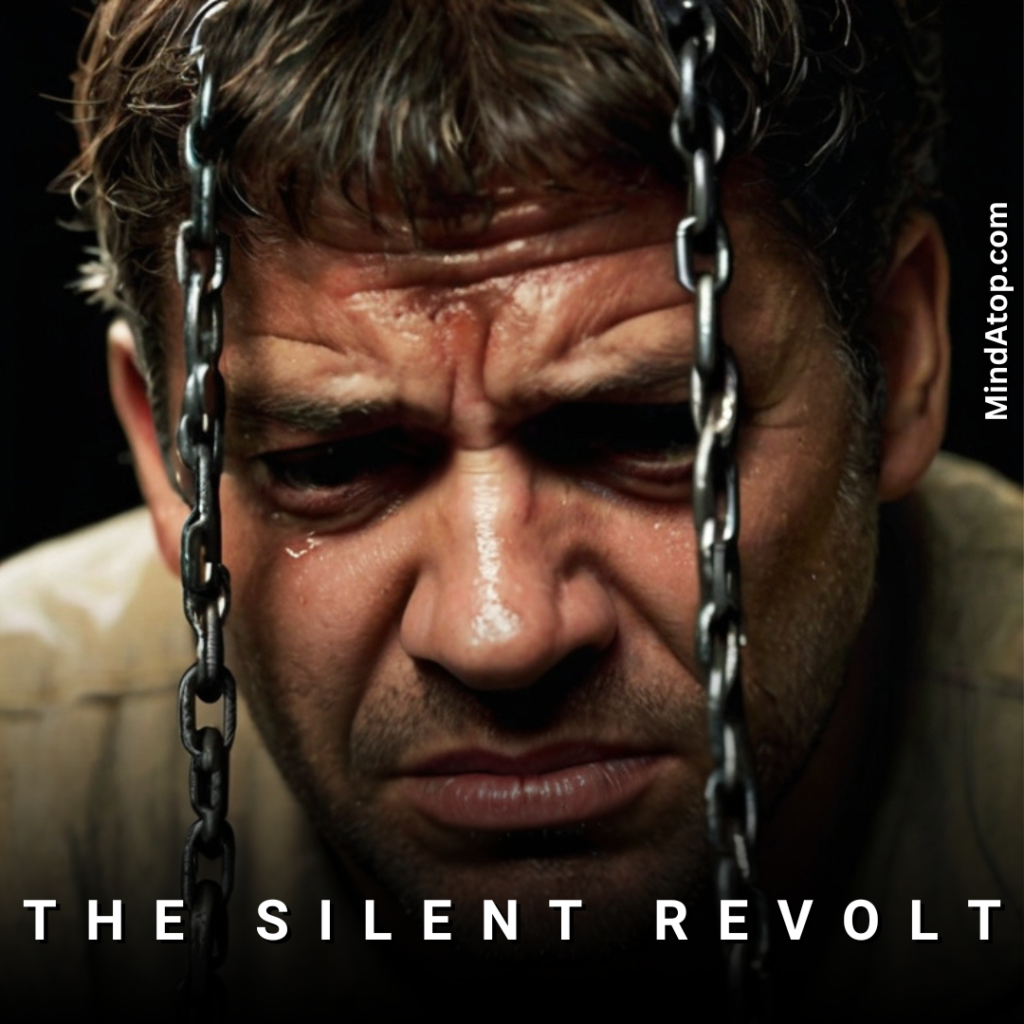Raghu sat in the corner of the dark room, his hands and feet bound in heavy iron chains. The flickering oil lamp on the wall cast long shadows around him. Outside, he could hear the loud, boisterous laughter of the landlord’s guards, eating and drinking after a day of exploiting the poor villagers. Raghu’s body ached from the beatings, but it was the pain of seeing his family suffer that hurt the most.
It had been two weeks since the landlord’s men had dragged him away from his fields, accusing him of refusing to pay the increased taxes. Raghu had protested, saying the rains had failed and the crops were poor, but the landlord’s greed knew no mercy. “You will work until your debt is paid,” the landlord had said, chaining Raghu in his mansion’s basement like an animal.
Every day, Raghu was forced to do hard labour, cutting wood and carrying heavy loads. The guards kept a close eye on him, their whips ready to strike if he so much as slowed down. Raghu obeyed silently, his spirit crushed under the weight of his chains. He had no choice—his family was threatened, his land stolen. In his heart, though, a quiet anger simmered, waiting.
One evening, while Raghu was sitting in his cell, a sudden hush fell over the mansion. He could hear hurried footsteps, panicked voices. Something was wrong. Then came the sound of horses galloping away, followed by more shouts.
Raghu pressed his ear against the door, trying to understand what was happening. Moments later, one of the younger guards rushed in, his face pale. “The drought is spreading,” he muttered to the older guard. “The landlord’s men are leaving. They can’t protect him anymore. There’s talk of rebellion in the neighbouring village.”
The older guard cursed under his breath. “Let them leave. We’ll guard the mansion.”
Raghu’s heart skipped a beat. This was the moment he had been waiting for. The landlord’s power was crumbling. Without his guards, the villagers wouldn’t stay silent anymore. Raghu could feel the tension in the air—the chains that bound him were no longer enough to keep him down.
That night, when the guards were distracted by the chaos, Raghu used a loose brick from the wall to break his chains. His wrists were raw and bloody, but he didn’t care. This was his chance. Silently, he crept out of the cell and made his way to the village.
By the time Raghu arrived, word had already spread. The villagers, tired of years of exploitation, were ready. Armed with sickles, sticks, and whatever they could find, they marched toward the landlord’s mansion, determined to take back what was theirs.
Raghu, no longer a prisoner, stood at the front of the crowd. The landlord’s guards, outnumbered and terrified, fled into the night, leaving the mansion unprotected.
As the villagers stormed inside, Raghu felt the weight of his chains fall away completely. The anger that had once kept him in silent obedience was now the force that set him—and his people—free.
The landlord’s power crumbled, not because of his wealth or
his men, but because the people, once pushed down, had finally risen.

